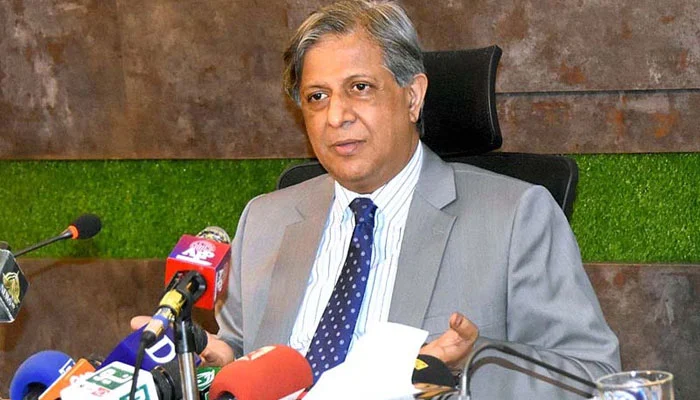Cabinet okays bill; CJP’s powers shifted to 3-member committee of senior judges
In a bid to limit the discretionary powers to take suo motu notice by Pakistan’s top judge, Law Minister Azam Nazeer Tarar Tuesday tabled the Supreme Court (Practice and Procedure) Bill, 2023.
The development came a day after two Supreme Court judges Justice Syed Mansoor Ali Shah and Justice Jamal Khan Mandokhail raised questions over the powers of the CJP, saying the apex court “cannot be dependent on the solitary decision of one man, the Chief Justice”.
The law minister, while speaking on the floor of the house, said the apex court’s reputation was damaged due to the actions taken in the name of suo motu notices.
“We have even seen that era when suo motu notices were taken on trivial matters […] also, in the past, several review cases were delayed and not fixed for hearing,” the minister said.
Building on the argument, he noted that the dissenting note of the two judges has led to further concern. Tarar added that decisions taken under suo motu notices could not be appealed earlier.
“It is important to give the chance to appeal an order and the parliament has always demanded that the right to appeal should be given,” the law minister said.
The house has sent the proposed bill to the NA Standing Committee on Law and Justice for further approval — which will meet today (Wednesday) morning under the chair of Chaudhry Mahmood Bashir Virk.
The committee will send it back to the lower house. After the NA passes the bill, it will be sent to the Senate for approval.
The bill includes shifting the powers of taking suo motu notice from the chief justice to a three-member committee comprising three senior judges.
Moreover, the bill also includes a clause regarding the right of challenging the decision which could be filed within 30 days and will then be fixed for a hearing in two weeks’ time.
According to the bill every clause, appeal or matter before the Supreme Court shall be heard and disposed of by a bench constituted by the committee comprising the CJP and two senior judges, in order of seniority.
The bill also mentioned that the decision of the committee shall be by the majority. However, the two SC judges in their detailed notes had juxtaposed majority rule with “dictatorship”.
They said: “Taking all decisions only by majority rule is no less dictatorship, and the absolutist approach to controversial issues is the hallmark of extremists.”
It was also mentioned in the bill that any matter invoking the exercise of original jurisdiction under clause (3) of Article 184 of the Constitution shall be placed before the committee constituted under section 2 for examination and if the committee is of the view that a question of public importance with reference to enforcement of any of the fundamental rights conferred by Chapter I of Part II of the constitution is involved, it shall constitute a bench comprising not less than three judges of the Supreme Court which may also include the members of the committee, for adjudication of the matter.
Meanwhile, in matters where interpretation of the constitutional provision is involved, the committee shall constitute a bench comprising not less than five judges of the apex court.
The bill also grants the party to appoint counsel of its choice for filing a review application under Article 188 of the Constitution. It should be noted that the counsel, for this purpose, shall mean an advocate of the Supreme Court.
“An application pleading urgency or seeking interim relief, filed in a cause, appeal or matter, shall be fixed for hearing within fourteen days from the date of its filing,” the bill read.










